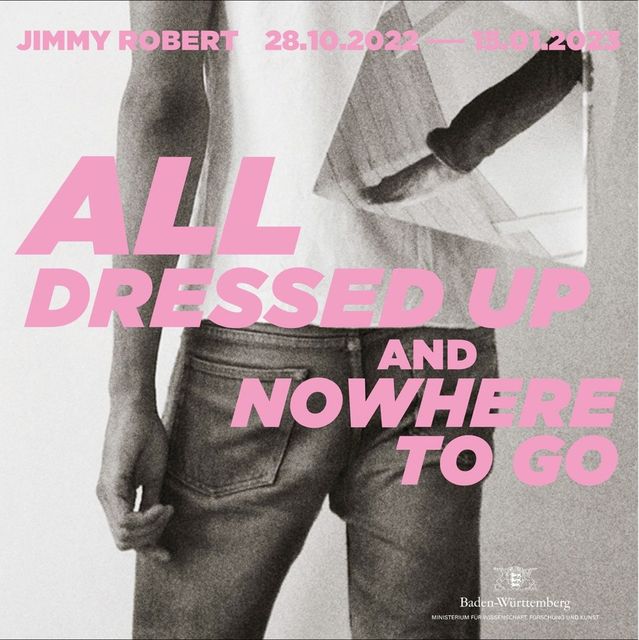
All dressed up and nowhere to go is a comprehensive solo exhibition by Guadeloupe born French artist Jimmy Robert (*1975).
Posing, dancing, dressing, voguing, or cruising: Jimmy Robert’s works deal with different forms of movement, be they in art, queer culture, or public space. Movement is not neutral, but also says something about its actor: it is directed, standardized, and becomes a marker in relation to society. As a public building, the Kunsthalle also prescribes various movements that are structured by its architecture: Strolling in the nineteenth century park, towards the Kunsthalle, an Art Nouveau building, climbing up to the exhibition rooms via the representative stone- and finally marble staircase into the main hall and the course of the rooms of the White Cube.
Here the exhibition begins with a new installation designed by Jimmy Robert in collaboration with Studio Diogo Passarinho. Through large mirrored walls, it initially places the viewer at the center. The labyrinthine architecture formulates a stage and its backstage, a dressing room, a new space, and a trompe-l’oeil image. It conveys an intimate emptiness in the exhibition space of the public institution, in which the visitors are initially confronted with themselves. The title All dressed up and nowhere to go thus poses the question of belonging, position, one’s own gaze, and that of others. Clothing as costume, dressing and undressing, stage and backstage are ideas that run through the installation as well as the photo series created on-site. Performance, as a practice in the artist’s oeuvre, is dissected here in time and space and can be experienced as an installation and as the site of a temporally displaced event.
Through a chronology of early to recent performance, photography, and film, the exhibition presents the artist’s multimedia oeuvre over the last twenty years, revealing the network of recurring themes that preoccupy the artist in his work. The focus is on the body, mostly his own, in relation to different external structures: gaze and space. Through constant retelling, relating, and adapting, Robert becomes aware of the dynamics of visibility and attribution. What history and socialization do gazes have, or places? How does the gaze/place structure one’s being?